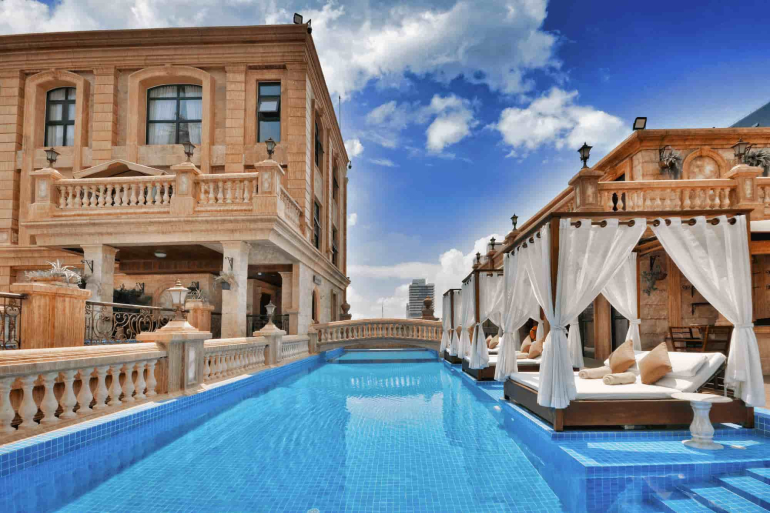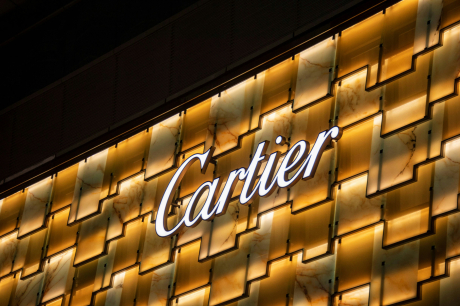Establishing a luxury hotel brand requires a strategic approach that goes beyond aesthetics and service excellence. In an increasingly competitive market, luxury hotels must differentiate themselves through a combination of strong brand positioning, emotional engagement, and operational precision. The ability to craft an exclusive yet scalable brand experience is key to long-term success.
Building a luxury hotel brand is not only about marble walls and a Michelin-starred chef, but rather about personalization, exclusivity, discretion, and care. Successful luxury hotels understand the ever-evolving expectations of their ultra-high-net-worth clients and must deliver on the promise of personalized luxury at every stage of the guest experience.
This article explores the core principles that define a high-end hospitality brand, focusing on branding strategy, guest experience differentiation, and pricing integrity. By analyzing industry best practices and leading examples, we outline actionable insights for creating a luxury hotel brand that not only stands out but also builds lasting prestige and customer loyalty.

Why is Branding a Secret of Luxury Hotels
Branding is the invisible force behind the prestige of luxury hotels—it’s not just a logo or a name, but an entire ecosystem of perception, exclusivity, and emotional connection. Unlike mainstream hospitality, luxury hotels don’t rely on mass advertising or discounts. Instead, they cultivate a quiet allure, where reputation, heritage, and carefully curated experiences speak louder than any marketing campaign.
A luxury hotel’s brand is a secret because it’s built on subtlety and storytelling rather than overt promotion. It’s embedded in the signature scent that lingers in the lobby, the bespoke service that anticipates needs, and the design details that whisper sophistication without shouting status. The most prestigious hotels ensure their brand feels like a discovery rather than a transaction, creating an insider’s world where guests feel part of an elite experience rather than a public commodity. True luxury isn’t advertised—it’s understood.
From the art of branding to the anticipation of client needs, the world’s most prestigious hotels master a set of key principles that elevate their status beyond mere accommodation. Below are the essential strategies you may use to create a truly luxury hotel brand.
1. Create a Distinctive Brand Promise
Every exceptional hotel has a clear, well-aligned and memorable promise that keeps guests returning. It’s never just about the accommodations or cuisine—it’s about the atmosphere that makes each stay extraordinary and unforgettable. Whether it’s the cosmopolitan charm or a sense of adventure, a luxury hotel should embody this promise in every detail of the experience.
Consequently, at the initial stage of brand creation, you should concentrate on emotions and values rather than the visual side of the brand such as, for instance, logo and specific brand colours. It is really important as determining how your guests are supposed to feel in your hotel will impact all the following decisions in the next phases. So skipping this stage will make you lose clarity on what you want to achieve at the end of the project.
The Ritz-Carlton: Legendary Luxury & Personalized Service
The Ritz-Carlton has built its reputation on exceptional service and timeless elegance. Their brand promise revolves around delivering unparalleled personalized experiences, ensuring that every guest feels valued and cared for.
- Gold Standards: The Ritz-Carlton operates under a set of guiding principles known as the Gold Standards, which include their Credo, Motto, and Three Steps of Service. Their motto, “We are Ladies and Gentlemen serving Ladies and Gentlemen,” reflects their commitment to gracious hospitality and refined service.
- Personalized Guest Experience: Employees are empowered to create memorable moments for guests, anticipating and fulfilling each guest’s needs.
- Luxury & Attention to Detail: From meticulously designed interiors to world-class amenities, every aspect of The Ritz-Carlton experience is curated to evoke a sense of sophistication and exclusivity.
2. Anticipate clients’ needs
Anticipating client needs is at the heart of luxury hospitality, ensuring that every aspect of the guest experience feels effortless and personalized. True luxury isn’t just about responding to requests—it’s about predicting them before they’re even voiced. This means understanding guests' preferences, lifestyles, and expectations, crafting an environment where comfort and convenience are seamlessly woven into their stay. Whether it’s ensuring their preferred drink is waiting upon arrival, adjusting room ambiance to suit their tastes, or proactively offering bespoke experiences tailored to their interests, every detail should feel intuitively curated.
Luxury hotels achieve this through Internet search which provides specific information about what specific clients may need or expect. Those data-driven insights will help a well-trained staff anticipate unspoken needs. From remembering previous stays to offering exclusive access to experiences that align with their profile, proactive hospitality transforms a stay into an unforgettable journey. By anticipating needs, hotels move beyond service—they create lasting emotional connections, reinforcing a sense of belonging and exclusivity that keeps guests returning.
In the brilliant book “A Wealth of Insight: The World's Best Luxury Hoteliers on Leadership, Management, and the Future of 5-Star Hospitality” by Rahim B Kanani, Aaron Kaupp who is Managing Director at Raffles The Palm Dubai, said “We empower staff at all levels to be ambassadors of anticipation. If a client goes for a run every morning, and the order-taker at breakfast knows this and makes note, guest relations can offer up alternative jogging maps without being prompted. If a client is an avid martini drinker, serving their favorite drink in an engraved glass bearing his or her name is the kind of detail-oriented touch we aim to provide. We try to recreate the home away from home feeling, which in turn makes our guests feel valued and special.”
3. Showcase your luxury hotel’s brand identity through experience.
In the world of luxury hospitality, every interaction is an opportunity to reinforce the brand. A luxury hotel’s brand isn’t just seen—it’s felt. By curating exceptional moments at every touchpoint, staying at the hotel becomes for guests an immersive experience.
A luxury hotel brand goes far beyond traditional visual brand identity elements. Every detail—from interior design and staff uniforms to room amenities and restaurant materials—plays a crucial role in maintaining a cohesive and immersive brand experience. Equally important are the non-visual cues, such as the ambiance of sounds, signature scents, and the tactile quality of materials, all working together to create a truly memorable stay.
Luxury hotels have an immersive, multisensory approach that underscores the need to define a hotel brand as a holistic concept rather than just a visual identity. True luxury hospitality is felt through every interaction, creating an experience that is elegant, seamless, and deeply memorable.
According to the Italian Scent Company, a great example of multisensory branding in luxury hospitality is Pan Pacific London. This hotel integrates scent marketing into its brand experience, using a signature fragrance that reflects its international philosophy. The scent, composed of green and fruity notes, enhances the hotel’s spaces with a modern sense of luxury, creating a memorable and immersive atmosphere for guests.
4. Create a discreet symbol that will be a quiet mark of exclusivity
A luxury hotel brand must be recognizable yet discreet—standing apart without catering to mass appeal. To maintain this discreet elegance, subtle branding is key. A thoughtfully designed symbol, something understated yet meaningful, can serve as a quiet mark of affiliation. Whether it’s engraved on a pen, stitched onto a shopper bag, or embossed on a pair of slippers, it should speak to those who understand its significance. A nod to exclusivity—if you know, you know.
Your guests should feel part of a global community, effortlessly recognizing one another beyond the hotel’s walls, no matter where they travel. By creating your unique symbol of your hotel, you will create a bridge which will foster a sense of belonging and unspoken unity, allowing those who are familiar with its meaning to recognize each other and unite with one another.
5. Create Cultural Moments
Luxury hotels can create cultural moments by hosting exclusive events that embody their brand identity—think private art exhibitions, couture fashion previews, or intimate culinary experiences featuring Michelin-starred chefs. These events should feel effortlessly aligned with the brand’s luxury positioning and offer guests something they can’t find elsewhere.
Some of the most powerful cultural moments happen when guests feel part of an elite tradition. Whether it’s a signature champagne toast at sunset or an annual members-only retreat, creating rituals and legacy-driven experiences helps turn a hotel brand into a destination known for exclusivity.
For instance, the Lanesborough, London offers one of the most refined afternoon tea experiences, blending British tradition with luxurious hospitality. Served in the majestic Lanesborough Grill, guests are immersed in an elegant Regency-style setting, with soft natural light streaming through a domed glass roof. The menu showcases a carefully curated selection of fine teas, delicate pastries, and classic scones, all crafted by expert pastry chefs. Seasonal themes, such as the Bridgerton Afternoon Tea, add a unique twist to the experience, paying homage to the opulence of the Regency era with specially designed treats.To enhance the atmosphere, weekends feature live piano music, elevating the experience into something truly memorable. More than just tea, this gathering embodies sophistication and timeless luxury.
6. Focus on preserving exclusivity rather than competing on price reductions.
For luxury hotel brands, avoiding discounts is a key strategy in maintaining exclusivity and perceived value. Instead of lowering prices, high-end hotels focus on enhancing the guest experience, reinforcing their reputation for prestige and distinction. Discounts can dilute the brand’s perception, making it seem more accessible to the mass market rather than an elite experience. Instead, luxury hotels build brand loyalty by crafting tailored experiences, personalized services, and exclusive events that resonate with their target clientele.
A well-established luxury hotel doesn’t compete on price but rather on quality, uniqueness, and emotional connection. Offering bespoke experiences, signature amenities, and private access to exclusive perks strengthens the brand’s positioning and reinforces a sense of privilege. This could mean invitation-only culinary experiences, first-class concierge services, or partnerships with luxury fashion and lifestyle brands—all designed to enrich a guest’s stay without diminishing the brand’s high-end appeal. By focusing on intrinsic value rather than price reductions, luxury hotels preserve their aura of exclusivity while ensuring guests feel they are receiving something extraordinary rather than simply a discounted rate.
What makes a Masterpiece Hotel? - "A great hotel is a dream-like escape, and the experience of returning is like revisiting a lifelong friend, again and again." - Richard E. Grant, actor, in the foreword for Living the Dream about OETKER COLLECTION'S Hotels
Conclusion
Luxury is neither accidental nor artificial—it is an art form, a philosophy, and a commitment to absolute perfection. It is not merely about aesthetics or indulgence but about a seamless orchestration of experience, anticipation, and belonging. A true luxury hotel brand does not chase trends or dilute its essence with discounts; instead, it stands resolute in its purpose—curating a world where every detail is intentional, every gesture is meaningful, and every guest feels like home and taken care of in the best possible way.
The future of luxury hospitality is not in volume but in intimacy and storytelling. It is about creating moments that linger and service that speaks to not only body but also the soul. Those who understand this do not build hotels; they build temples of community.






Comments